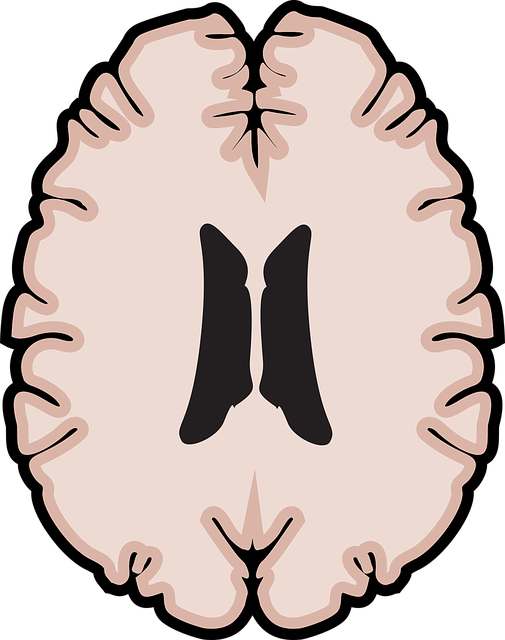Northglenn Couples Counseling Therapy focuses on understanding the complex roots of substance abuse by addressing underlying emotional, mental health, and psychological distress. They employ evidence-based practices like Mind Over Matter principles, mindfulness meditation, and cognitive-behavioral therapy to empower individuals with effective stress reduction methods and tailored coping strategies. By prioritizing self-care, communication improvement, and healthier relationships, Northglenn Couples Counseling Therapy fosters resilience against relapse, offering specialized services and programs for trauma support, depression prevention, and burnout mitigation among healthcare providers. Their holistic approach ensures long-term risk mitigation through consistent care that promotes both short-term recovery and lasting wellness.
Substance abuse poses significant risks, but proactive strategies can help mitigate these dangers. This comprehensive guide explores four effective approaches for reducing substance abuse risks. Firstly, understanding the triggers and risks associated with substance abuse is crucial. Next, building resilient coping mechanisms equips individuals to handle cravings and stress without resorting to substances. Accessing support systems, including professional help from Northglenn Couples Counseling Therapy, offers a safe space for guidance and recovery. Finally, implementing long-term risk mitigation strategies ensures sustained sobriety and improved quality of life.
- Understanding Substance Abuse Risks and Triggers
- Building Resilient Coping Mechanisms
- Accessing Support Systems and Professional Help
- Implementing Long-Term Risk Mitigation Strategies
Understanding Substance Abuse Risks and Triggers

Substance abuse risks and triggers are complex issues that require a nuanced understanding. Northglenn Couples Counseling Therapy emphasizes the importance of recognizing personal vulnerabilities and environmental factors that contribute to substance misuse. Many individuals turn to drugs or alcohol as a coping mechanism for underlying emotional, mental health, or psychological distress. These triggers can be situational, such as stress from work or relationships, or they can stem from deeper issues like trauma or chronic pain.
By understanding these risks and triggers, individuals and healthcare providers alike can employ effective strategies. The Mind Over Matter Principles, for instance, focus on cultivating mental resilience and healthy coping mechanisms to manage stress without relying on substances. Additionally, Healthcare Provider Cultural Competency Training equips professionals with the knowledge to address diverse patient needs, ensuring culturally sensitive care. Stress Reduction Methods, such as mindfulness practices or cognitive-behavioral therapy, can also play a vital role in preventing substance abuse by teaching individuals to regulate their emotions and navigate challenging situations without resorting to harmful behaviors.
Building Resilient Coping Mechanisms

Building resilient coping mechanisms is a powerful strategy to reduce risks associated with substance abuse. Northglenn Couples Counseling Therapy emphasizes the importance of self-care practices and stress reduction methods, which are fundamental in fostering mental and emotional well-being. By integrating mindfulness meditation into daily routines, individuals can enhance their ability to manage distressing situations without resorting to substance use. This practice trains the mind to stay present, increasing awareness of triggers and promoting healthier responses.
Through counseling sessions at Northglenn Couples Counseling Therapy, clients learn effective coping strategies tailored to their unique needs. These mechanisms empower individuals to navigate challenges, build resilience, and maintain a sober lifestyle. By prioritizing self-care and adopting stress reduction techniques, one can create a supportive environment that deters the urge to abuse substances as a copping mechanism.
Accessing Support Systems and Professional Help

Accessing support systems is a pivotal step in mitigating risks associated with substance abuse. Northglenn Couples Counseling Therapy offers specialized services tailored to individual and relational needs, providing a safe space for vulnerable individuals to process underlying issues contributing to their struggles. Through therapy, clients can develop coping strategies, enhance communication skills, and foster healthier relationships—all crucial elements in preventing relapse.
In addition to therapy, Trauma Support Services, Mindfulness Meditation, and Depression Prevention programs play significant roles in risk reduction. These initiatives focus on addressing trauma, cultivating mental clarity, and managing depressive symptoms that often accompany substance abuse disorders. By integrating these practices into their support systems, individuals can build resilience, promote self-care, and create a solid foundation for long-term recovery.
Implementing Long-Term Risk Mitigation Strategies

In addressing substance abuse, implementing long-term risk mitigation strategies is paramount to fostering lasting change. Northglenn Couples Counseling Therapy emphasizes holistic approaches that go beyond immediate intervention. By integrating evidence-based practices into daily routines, individuals can proactively manage triggers and cravings, laying a solid foundation for recovery. This includes teaching effective stress management techniques, such as mindfulness meditation and cognitive behavioral therapy (CBT), which help in regulating emotions and improving decision-making skills.
Furthermore, healthcare providers can contribute significantly to risk reduction by adopting burnout prevention strategies. Incorporating self-care practices like regular exercise, adequate sleep, and balanced nutrition not only enhances mood management but also boosts overall resilience against substance abuse relapses. The well-being of healthcare providers is crucial in ensuring consistent care for their patients, creating a supportive environment that encourages both short-term recovery and long-term wellness.
Substance abuse is a complex issue, but with the right strategies, individuals can significantly reduce risks and lead healthier lives. By understanding triggers, building resilient coping mechanisms, accessing support systems like Northglenn Couples Counseling Therapy, and implementing long-term risk mitigation strategies, one can foster personal growth and recovery. These measures empower individuals to take control of their well-being and create a brighter future free from substance abuse.














